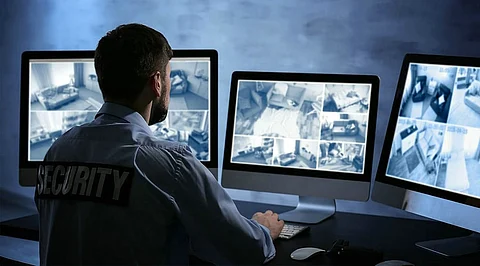
- Insights
- Cryptocurrencies
- Stocks
- White Papers
- Industry
- Geography


Technology has become advanced with time and it will only be getting smarter. Biometric technology, specifically facial recognition, is among them that has transformed the security approach worldwide. With advances in camera technologies and the proliferation of smartphones, facial recognition is relentlessly gaining rapid momentum. However, as this technology has a tremendous impact from a cybersecurity perspective, it also has a security flaw. It raises concerns throughout its reliability and effectiveness. In this article, we will look into what if a facial recognition firm is hacked and who will be accountable?
This biometric technology is a fascinating and intriguing cybersecurity solution. It performs by using cutting-edge technologies such as artificial intelligence, machine learning and deep learning. A facial recognition system identifies and validates a person's identity by scanning their face. It captures, assesses, and compares patterns of a face with the person's facial details stored in a database. Facial recognition is being used at airports, banks, retail stores, hotel check-ins, and other places to prevent any uncertainties. But the use of this biometric software sparks concerns around data privacy and security.
Understand these concerns with an example. In facial biometrics, a 2-dimensional or 3-dimensional sensor captures a face. It then converts the face into digital data using algorithms before comparing the face to those available in a database. These automated systems are constructive to classify or check an individual's identity in a fraction of time based on their facial features.
Despite these pros, the deployment of facial recognition can be risky. With gaining a lot of public interest for numerous good reasons, facial recognition also attracts cybercriminals to compromise systems. In 2019, it was reported that hackers breached Apple's iPhone FaceID user authentication in just 120 seconds. Well, this was done at the annual Black Hat hacker convention organized by security researchers in Las Vegas. But this breach, which did in just seconds, may surprise users.
Let's see another recent instance. A group of hackers breached popular surveillance and facial recognition camera company, Verkada. The hackers managed to access live feeds of thousands of surveillance cameras across the world inside companies, hospitals, police departments, prisons and schools. The breach shows how common places are increasingly implementing facial recognition-powered cameras. Releasing a spreadsheet, Tillie Kottman, one of the hackers claiming responsibility, told Motherboard in an online chat that "It's so abysmal."
Furthermore, in February last year, a data breach was reported when a facial recognition software provider company Clearview AI was hacked. The company gleans billions of photos off the internet and uses them for facial recognition technology. The hackers also reportedly breached its entire client list.
Such cases in the coming days will only become bizarre. Not only companies but city authorities in most countries also use facial recognition software. In several Chinese cities, authorities have fitted AI-powered CCTV cameras on lampposts that map pedestrian faces with the government database. Some restrooms in Beijing also deployed this technology to deter the stealing of toilet paper.
The same security concern has now reached individuals' personal level. For example, have you ever noticed when you upload a group picture on a social network, your friends are getting tagged automatically? This is because of facial recognition technology.
More broadly, as facial recognition or biometric technology is becoming prevalent and getting smarter over time, there is a need for a robust policy and regulation that can control and ensure data privacy and security.
